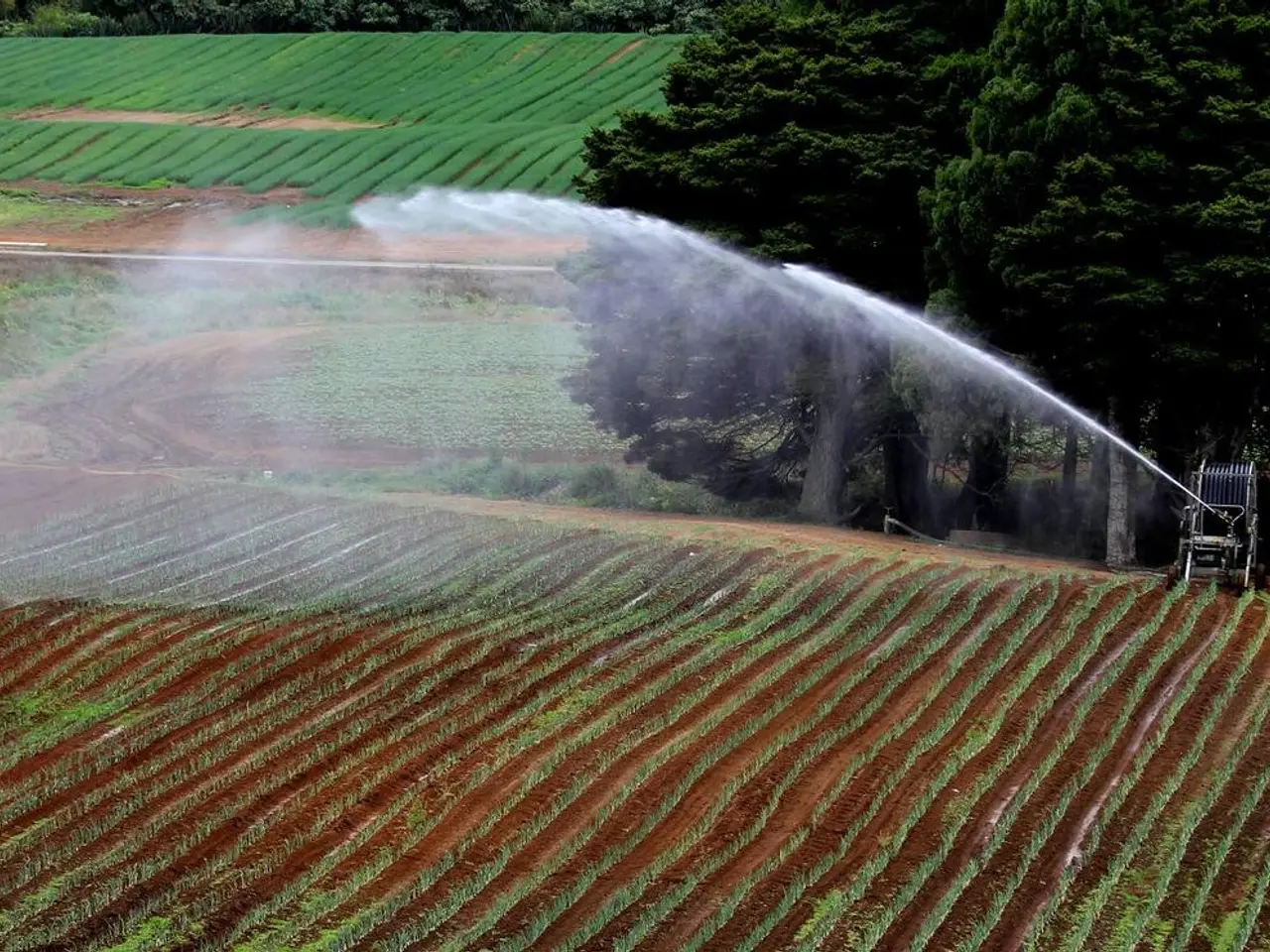City-Dwellers Embrace Agriculture, Looking Towards a Rural Lifestyle in India's Future
In the heart of India's IT capital, Bengaluru, a green revolution is underway. Farming collectives are rapidly gaining momentum, transforming the city's landscape and promoting sustainable living.
At least six farming collectives are currently active in the area, with more potential joiners on the horizon. These groups, often functioning as community-based farmer producer organizations or cooperatives, are spearheading the adoption of natural and regenerative agricultural practices.
One such collective is Tamarind Valley Collective (TVC), a farming collective near Denkanikottai where members have a deep passion for the environment. Here, 52 families are striving to balance farm-to-table culture with the lifestyle of villagers in Thaggatti. TVC was founded by Varun Pandey and Yathesh Kumar, who bring together their experience from IT start-ups and farming under the label WeCommunities.
These collectives are addressing sustainability and environmental challenges in innovative ways. For instance, they are improving soil health and water retention through organic farming practices and composting. By employing techniques such as mulching, composting, and organic soil enrichment, these collectives reduce the need for excessive irrigation, a crucial step in addressing water scarcity issues in Bengaluru.
Moreover, these farming collectives are eliminating synthetic chemicals, thereby reducing air pollution from agrochemicals. The use of biomass, organic matter, and zero-budget natural farming (ZBNF) methods significantly reduces chemical input and the release of toxic substances into the air.
In terms of plastic consumption, farming collectives promote circular economy principles by encouraging composting of organic waste and community-level waste-to-resource systems. By fostering local compost production and minimizing agrochemical packaging usage, these collectives help reduce plastic waste.
Community engagement through self-help groups and farmer field schools facilitates knowledge sharing, empowering farmers with methods that support biodiversity, reduce environmental footprint, and enhance climate resilience. Government schemes and CSR initiatives further support these collectives by providing training, financial incentives, and technological tools to sustain and upscale their impact.
Shannon Olsson, director of the Echo Network, supports urban farming and farming collectives due to their potential for environmental responsibility and accountability. Olsson emphasizes the importance of eating locally to reduce food miles and cut greenhouse gas emissions.
The rise of farming collectives in Bengaluru is a testament to the city's growing commitment to sustainable living. As India's third-largest greenhouse gas emitter and with a high-carbon lifestyle expected to rise rapidly in the next few years, these initiatives are crucial in addressing environmental challenges.
[1] Navin Horo, national project coordinator of the Climate Change Knowledge Network in Indian Agriculture, suggests that urban farmers engaging with local farmers can help address socioeconomic issues related to the environment. [2] Several IT professionals have been establishing farming collectives on the outskirts of Bengaluru to live sustainably and build circular communities. [3] Government initiatives created Farmer Producer Organizations (FPOs) to help farmers in India. [4] Bengaluru suffers from the worst traffic in the world, keeping residents in traffic for up to three hours a day, equating to an extra 243 hours a year. [5] More than half of India's 1.3 billion people depend on agriculture for a living. [6] Villagers in Thaggatti now invite TVC members to their festivals, temples, and annual fairs. TVC aims to bring increased access to chemical-free food and education for children in the village. [7] TVC aims to grow a regenerative food forest that meets most of its food needs and relies on harvested water for irrigation, instead of groundwater. [8] Olsson emphasizes the importance of eating locally to reduce food miles and cut greenhouse gas emissions. [9] At TVC, 52 families are striving to balance farm-to-table culture with the lifestyle of villagers in Thaggatti. [10] One such farming collective is Vanam Farms, an 8.5-acre farm in Belalam village growing vegetables like beans and cabbage. [11] Farmers in India face numerous problems, including increasing suicide and poverty rates, class oppression, and lack of access to government benefits.
- The Tamarind Valley Collective (TVC) in Denkanikottai, a farming collective led by IT professionals Varun Pandey and Yathesh Kumar, is fostering sustainable living by balancing farm-to-table culture with the village lifestyle in Thaggatti.
- Shannon Olsson, director of the Echo Network, supports farming collectives as a means to promote environmental responsibility, encouraging locals to eat sustainably and reduce food miles to cut greenhouse gas emissions.
- Alongside TVC, other farming collectives such as Vanam Farms in Belalam village are adopting natural and regenerative agricultural practices, growing crops like beans and cabbage.
- To address sustainability and environmental challenges, these collectives employ organic farming methods, improving soil health and water retention, and minimize the use of synthetic chemicals and plastic.
- The growing momentum of farming collectives in Bengaluru is crucial in reducing India's carbon footprint as the third-largest greenhouse gas emitter, given the increasing high-carbon lifestyle expected in the coming years.
- Community engagement through self-help groups and farmer field schools in these collectives empowers farmers with sustainable practices that help reduce their environmental footprint, enhance climate resilience, and improve biodiversity.




